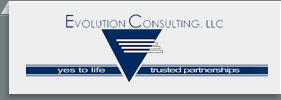Assessing our Accountability

Assessing our Accountability
The extent of your organization’s accountability for conducting sanction screening depends on certain factors, such as your type of healthcare institution, the type of funding you receive, and the state(s) in which your business resides.
Federal Sentencing Guidelines for organizations (see link below) contain regulations regarding the establishment of effective compliance programs. To be in compliance with these regulations, an organization needs to “exercise due diligence to prevent and detect criminal conduct” and “promote an organizational culture that encourages ethical conduct and a commitment to compliance with the law” (§8B2.1). Organizations who receive Medicaid or other Federal/state medical assistance funding are regulated by the Department of Health & Human Services and the Office of Inspector General, which has the authority to exclude individuals and entities who have engaged in fraud or abuse, and to impose civil money penalties (CMPs) for certain misconduct related to Federal/State health care programs. Health care organizations who receive this type of funding need to comply with the Federal Sentencing Guidelines’ requirement for an effective compliance program that prevents/detects criminal conduct, which should include a robust sanction screening program.
- 2010 Federal Sentencing Guidelines – Chapter 8, Sentencing of Organizations [Effective Compliance Programs]
The DHHS Centers for Medicare and Medicaid Services (CMS) has responsibility for the administration of Federal health care financing programs and policies. Federal law prohibits CMS from making payments to States for items or services furnished by individuals or entities who are excluded from participation, which means that States must take reasonable steps to prevent this from occurring. CMS has issued two letters to all State Medicaid Directors (Jan 2009 and June 2008) advising them of their obligation to direct providers to screen their own employees and contractors for excluded persons on a monthly basis. Since some states maintain their own exclusion lists, providers are advised to search both Federal (OIG LEIE) and State exclusion lists.
- January 2009 – CMS Directive to State Medicaid Directors
- June 2008 – CMS Directive to State Medicaid Directors
Certain health care institutions with a business presence in New York State are required by Public Law to have established “effective” compliance programs. Pursuant to NY Social Services Law (SSL) § 363-d and Part 521 of Title 18 NYCRR, effective July 1, 2009, certain providers in NYS (hospitals, nursing homes, home health) as well as providers who claim/order/submit/receive at least $500,000 from medical assistance, are required to have “effective” compliance programs in place and provide annual certification each December. One element of an effective program is to conduct sanction screening of all parties, including Vendor entities and employees. The NY OMIG office has developed a Medicaid Compliance Program Assessment tool (see link below) that may be used during a focused review by the OMIG Bureau of Compliance. NY State also has procedures/tools available for Effective Provider Compliance Certification and Provider Self Disclosure. Click here for details.
Join our mailing list to stay up-to-date on the changing landscape of healthcare compliance.

E-mail Address:
Contact Us

OIG Compliance NOW, LLC
49 Court Street
Binghamton, NY 13901
Phone: (607) 240-2400
Fax: (607) 722-1877
E-mail: info@oigcompliancenow.com

Why OIG Compliance Now?

I'd like to know more about...

OIG COMPLIANCE NOW, LLC is a Limited Liability Corporation and is not affiliated with the United States Federal Government in any way. OIG COMPLIANCE NOW, LLC is not a government agency, nor is it approved, endorsed or authorized by the Department of Health and Human Services, the Office of Inspector General or with any agency of the federal or any state government to conduct its business.

